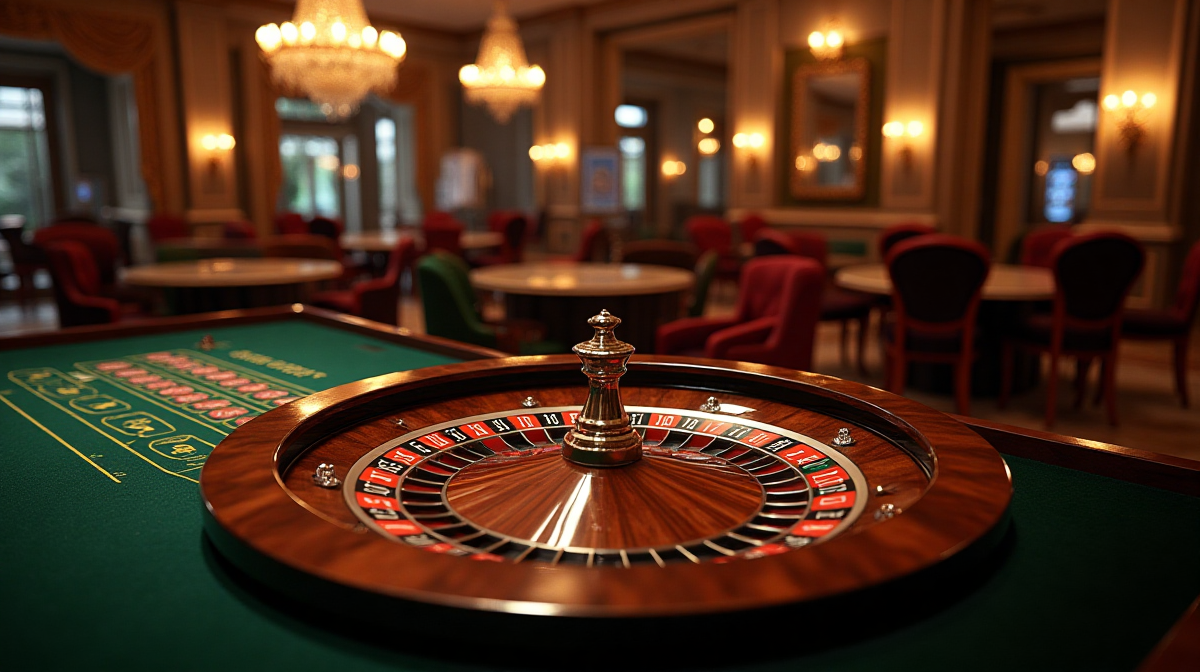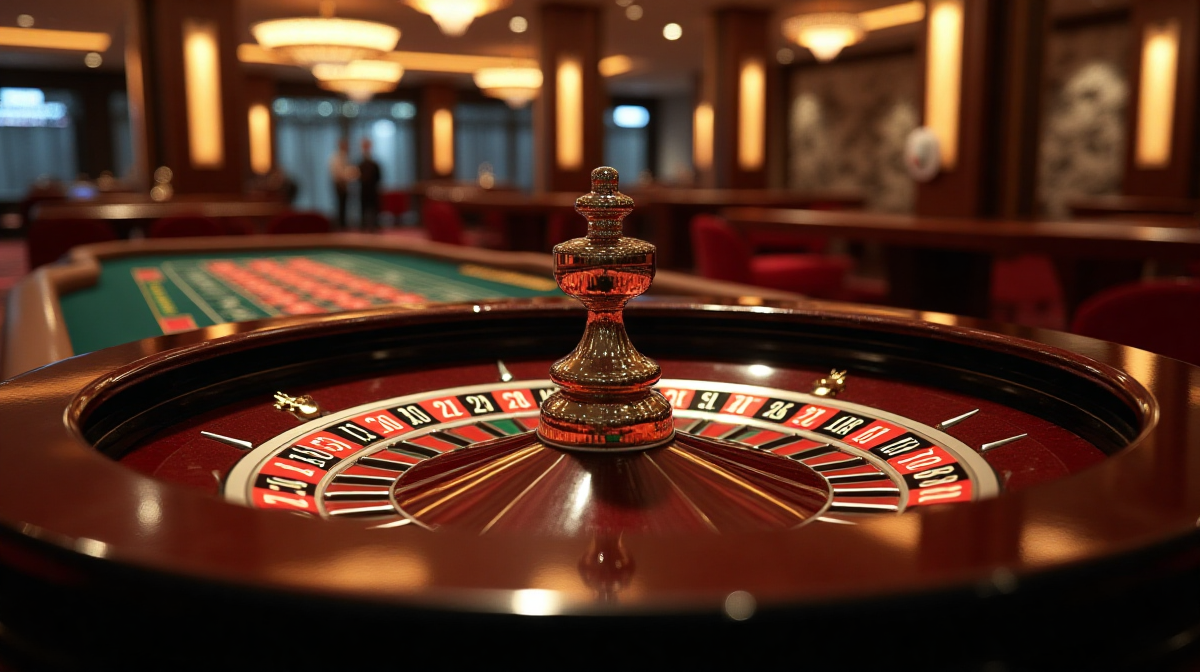Roulette Skill Move: Is It Real?
The Allure of the Roulette Skill Move – What Is It?
The idea of a “roulette skill move” captivates many gamblers. It suggests that beyond the inherent luck involved in spinning the wheel, a discerning player can leverage technique, observation, or strategy to consistently beat the odds. This concept promises control in a world defined by chance, fueling countless books, tutorials, and even sophisticated software claiming to unlock the secrets of the roulette table. Especially popular now are online platforms like betano bet, where players are constantly searching for an edge.
Why the Interest? Gambling Myths & the Desire for Control
The enduring appeal of believing in skill-based roulette stems from fundamental human desires. We crave control, especially when facing uncertainty. Gambling, by its nature, is a risk, and the notion of mitigating that risk by employing skill is incredibly attractive. This desire ties into broader gambling myths: the idea of “hot” and “cold” numbers, the perceived predictability of patterns, and the belief that past results influence future outcomes. This expectation fuels users to register betano bet seeking a way to predictably win.
Thesis Statement: Examining the claims of skill in roulette and its factual basis.
This article delves into the core of this debate, dissecting the common strategies, exploring the scientific perspective, and examining the psychological factors that contribute to the enduring belief in the “roulette skill move.” We’ll analyze whether genuine skill can improve long-term results, or if roulette ultimately remains a game governed by randomness.
Understanding Roulette: The Fundamentals
How Roulette Works: The Wheel, The Table, The Odds
Roulette appears simple: a spinning wheel with numbered pockets and a table where players place bets on where the ball will land. However, beneath the surface lies a complex interplay of physics and probability. The wheel consists of numbered slots (usually 1-37 in European roulette and 1-38 in American roulette). Players wager on single numbers, groups of numbers, colors (red or black), or other combinations. The casino pays out winnings based on the odds associated with each bet.
Randomness and Probability in Roulette - The Core Principle
At its heart, roulette is a game of pure chance. Each spin is independent of the previous ones, meaning past results have no bearing on future outcomes. The laws of probability dictate the likelihood of the ball landing in any particular pocket. This inherent randomness is the foundation upon which the entire game is built. Many mistakenly believe they can influence events, particularly when rapidly placing bets on platforms such as betano bet.
Types of Bets & Their Associated House Edge
Roulette offers a variety of betting options, each with a different payout and house edge (the casino's advantage). Inside bets (e.g., betting on a single number) offer higher payouts but lower probabilities of winning. Outside bets (e.g., betting on red or black) have lower payouts but higher probabilities. Understanding the house edge is crucial – it represents the guaranteed long-term profit for the casino.
Common Misconceptions About Roulette - Busting Myths
Many players fall prey to misconceptions. The gambler’s fallacy is a prime example – the belief that if red has come up several times in a row, black is due to appear. This is incorrect; each spin is independent. Another myth centers around “biased” wheels, the idea that certain pockets are more likely to be hit due to physical imperfections. While such imperfections can exist, modern casino equipment is rigorously tested and maintained to minimize this possibility.

The Claim of Skill – Exploring Roulette Strategies
Martingale System – Doubling Down on Losses
The Martingale system is perhaps the most well-known roulette strategy. It involves doubling your bet after every loss, with the aim of recouping all previous losses plus a small profit when you finally win.
How It Works & The Illusion of Guaranteed Wins
The core idea is that eventually, you will win, and by doubling your bet each time, your win will cover all prior losses. The system creates an illusion of guaranteed wins because a single successful bet will theoretically recover everything lost.
Risks & Limitations – Bankroll Requirements & Table Limits
However, the Martingale system is incredibly risky. It requires a massive bankroll to withstand potential losing streaks. Table limits imposed by casinos also pose a significant problem; you may reach the maximum bet before achieving a win, rendering the strategy useless. Trying to use this on betano bet can quickly drain your account.
Fibonacci Sequence – A Progressive Betting System
The Fibonacci sequence (1, 1, 2, 3, 5, 8, 13…) is a series where each number is the sum of the two preceding ones. Applied to roulette, players increase their bet according to the sequence after each loss and decrease it after each win.
Explanation of the Sequence & Its Application to Roulette
The thought is that the sequence allows for less aggressive increases after a loss compared to the Martingale system, potentially prolonging play and reducing the risk of quickly exhausting your bankroll.
Effectiveness & Potential Drawbacks
While less aggressive than Martingale, Fibonacci still relies on eventual wins to recoup losses, and the sequence can rapidly increase bet sizes. It doesn't alter the fundamental odds and doesn't guarantee profits.
D'Alembert System – A More Conservative Approach
The D'Alembert system involves increasing your bet by one unit after a loss and decreasing it by one unit after a win. It's a more conservative approach than Martingale or Fibonacci.
Mechanics & How It Differs from Martingale
Unlike Martingale which aggressively doubles bets, D'Alembert offers gradual adjustments. This means that losses aren't compounded as rapidly and the risk of quickly depleting a bankroll is reduced.
Practicality & Limitations
However, like other progressive systems, D'Alembert doesn’t change the inherent odds of the game. It can lead to small profits over time but is susceptible to losing streaks.
Visual Ballistics & Prediction - Attempts to Beat the Wheel
Visual ballistics involves attempting to predict where the ball will land based on observations of the wheel’s speed, the ball’s velocity, and subtle imperfections in the wheel itself.
The Theory Behind Predicting Where the Ball Will Land
Proponents believe that by accurately tracking these variables, they can narrow down the landing zone and place more informed bets. Some even attempt to integrate this with how to load bet slip on betano, hoping to automate their predictions.
Practical Challenges - Wheel Imperfections & Casino Control
In reality, accurately predicting the landing zone is incredibly difficult. Modern roulette wheels are designed to be remarkably precise and are regularly inspected. Even minor imperfections are often neutralized.
Legality & Ethical Concerns of using devices
Furthermore, using electronic devices to scan or predict ball landings is illegal in most jurisdictions and is strictly prohibited by casinos. The concept of no way out the roulette by prediction is largely a myth.
Expert Opinions & Scientific Analysis
What do Mathematicians and Statisticians Say? – Probability & Randomness
Mathematicians and statisticians overwhelmingly agree that roulette is a game of chance. They emphasize the importance of independent events and the role of probability. Statistical analysis consistently demonstrates that no betting system can overcome the house edge in the long run.
Casino Perspectives – House Edge & Risk Management
Casinos understand the mathematics of roulette intimately. Their entire business model is built on the house edge – the guaranteed profit they retain over time. They employ rigorous risk management strategies to ensure profitability and maintain the integrity of the game.
Research & Studies – Empirical Evidence on Roulette Strategies
Numerous studies have investigated the effectiveness of roulette strategies. The vast majority of these studies have found that no strategy can consistently guarantee profits. While some strategies may produce short-term wins, they are invariably followed by long-term losses.
Interviews with Professional Gamblers - Insights & Real-World Experiences (Realistic portrayal)
Professional gamblers understand the limitations of roulette strategies. While some may employ systems for bankroll management or to structure their betting, they acknowledge that luck plays the dominant role. They focus on disciplined betting, minimizing losses, and seeking opportunities where they have a slight statistical advantage (not typically in roulette).
The Role of Psychology in Perceiving Skill
Confirmation Bias & The Illusion of Control
Confirmation bias is the tendency to favor information that confirms existing beliefs. If a player believes a strategy works, they will selectively remember their wins and downplay their losses. This reinforces their belief, creating an illusion of control.
How Our Brains Interpret Random Events
Our brains are wired to seek patterns, even in random data. This pattern-seeking behavior can lead us to perceive skill where none exists.
Why People Believe Strategies Work Even When They Don't
The desire for control and the emotional rewards of winning contribute to the belief in roulette strategies, even in the face of statistical evidence to the contrary.
The Gambler's Fallacy – Misunderstanding Probability
As previously mentioned, the gambler’s fallacy leads players to believe that past events influence future outcomes. This flawed understanding of probability can lead to poor betting decisions.
The Thrill of the Game & Emotional Decision-Making
The excitement and adrenaline rush associated with gambling often override rational thinking. Emotional decision-making can lead players to deviate from their strategies, increasing their risk of losses.

Is a Roulette Skill Move Truly Possible? – The Verdict
Can Strategies Improve Your Chances of Winning? (Distinction between winning and reducing loss)
Strategies cannot improve your chances of winning in roulette. They can, however, help manage your bankroll and potentially reduce your rate of loss. It's crucial to differentiate between increasing your odds of winning and minimizing your risk of losing.
Managing Bankroll & Responsible Gambling
Effective bankroll management is essential for any form of gambling. Setting a budget, sticking to it, and avoiding chasing losses are crucial steps.
Minimizing Losses: A Realistic Approach
Accepting that roulette is a game of chance and focusing on minimizing losses is a more realistic approach than attempting to “beat” the game.
The Importance of Understanding the House Edge
Understanding the house edge is paramount. It’s a reminder that the casino always has an advantage in the long run.
Conclusion
Recap of Findings: Roulette is Primarily a Game of Chance
Throughout this exploration, the core conclusion remains consistent: roulette is primarily a game of chance. While various strategies have been proposed, none can consistently overcome the house edge or guarantee profits. Techniques like a “roulette skill move” are largely the product of wishful thinking and psychological biases.
Final Thoughts on the Roulette Skill Move – Myth vs. Reality
The allure of the “roulette skill move” is a powerful one, but it remains a myth. The desire for control and the human tendency to see patterns contribute to this enduring belief.
Promoting Responsible Gambling and Realistic Expectations
Responsible gambling involves understanding the risks, setting limits, and accepting that losses are inevitable. Realistic expectations are crucial; roulette should be enjoyed as a form of entertainment, not as a source of income.

